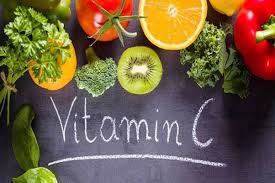In health and wellness, few vitamins capture attention, like vitamin C. Its significance is universal from childhood memories of citrus fruits to combating colds. As we enter the season of colds and flu, let’s delve into vitamin C and its impact on our immunity.
Do you need to supplement? While nature provides, our evolving lifestyles warrant a closer look. The recommended daily intake in the UK is 40mg, but research suggests higher amounts (up to 220mg) may optimize immune defence. Unlike most animals, humans can’t produce vitamin C, making daily ingestion crucial.
What does vitamin C do? Beyond fighting colds, vitamin C participates in 15,000 metabolic processes. It shields mucous membranes, supports collagen production, and bolsters the immune response. Crucially, it mitigates inflammatory responses and aids in liver detoxification. The benefits extend to protecting proteins from sugar-related damage, which is relevant for conditions like diabetes.
Vitamin C and infections – what does the science say? Despite mixed reports, studies reveal that while vitamin C may not prevent colds, it significantly reduces their duration. In the context of COVID-19, ongoing research suggests potential benefits in preventing pneumonia, a common lethal outcome.
Are we vitamin C deficient? Daily needs vary widely (40mg to 3g); even with a balanced diet, factors like stress, medication, and age can deplete our vitamin C levels. The body’s inability to store vitamin C underscores the need for consistent intake.
Could you overdose on vitamin C? While concerns exist, adverse effects from high doses are rare. The most common side effect is loose stools, signalling adequate vitamin C levels. Responsible supplementation, up to 10g daily, has shown no harmful effects in long-term studies.
What can you do to increase your vitamin C levels? Reducing stress, prioritizing sleep, quitting smoking, limiting alcohol, and embracing a diet rich in fresh fruits and vegetables are essential strategies. Aim for 7 to 10 servings daily, including citrus fruits, cruciferous vegetables, bell peppers, and more.
Therapeutic Doses In the event of an infection, nutritional therapist Patrick Holford recommends 1-2g at the first sign of a cold, with hourly doses until symptoms abate. Intriguingly, a recent trial suggests potential benefits of high-dose vitamin C in severe COVID-19 cases, awaiting peer review.
In conclusion, supplementing with vitamin C, within recommended limits, appears prudent. As we navigate these unprecedented times, fortifying our immune defences can only be an asset.
If you’re sick of feeling under the weather, book a free 30-minute digestive health mini consultation. You can do that by clicking here.










